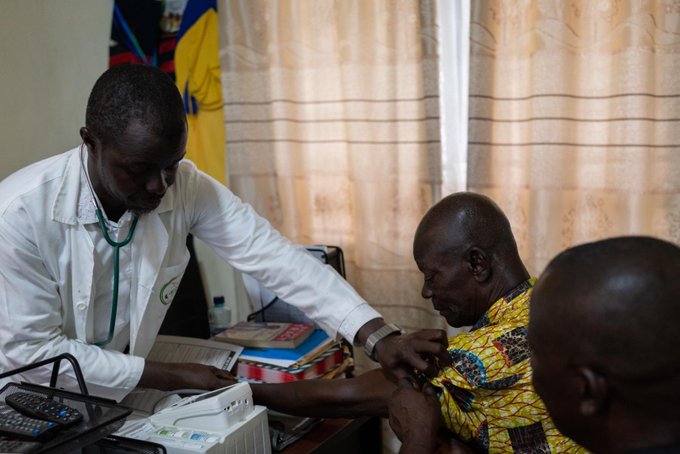The World Health Organization has announced that Ghana has attained one of the highest levels of regulatory systems for medicines in Africa.
It said on Wednesday that the West African nation has “strengthened its medicines regulatory system to ensure safety, quality and effectiveness of medical products manufactured, imported or distributed within the country.”
According to the WHO “Ghana becomes the second country in the WHO African Region to attain regulatory system “Maturity Level 3” – the second-highest in the four-tiered WHO classification of national medicines regulatory systems.”
There are four levels of regulatory systems classification starting from Level 1, where only some elements of regulation exist, and up to Level 4 corresponding to the advanced regulatory system.
Level 3 indicates that the system is well-functioning and integrates all required elements to guarantee its stable performance.
WHO said “evaluations of Ghana Food and Drugs Authority – the national regulatory body for medicines – were carried out in 2014, 2015 and 2019 through the WHO Global Benchmarking Tool.”
Ghana and Tanzania
Ghana and Tanzania are the only two of WHO African Region’s 47 countries to have attained a Level 3 ranking. Tanzania achieved the classification in November 2018.
“This is a milestone achievement. Strong national regulatory systems are critically important to ensure that when people seek treatment they receive effective medication and are safe from harm,” said Dr Matshidiso Moeti, WHO Regional Director for Africa.
She added that “Access to health care is incomplete without guaranteed quality.”
Mariângela Simão, WHO Assistant Director General for Access to Medicines and Health Products said “I believe this achievement will further catalyse other countries in Africa to invest in regulatory systems strengthening to ensure availability and access to quality assured, safe, effective and affordable medical products to their populations.”
“It should also serve to promote confidence, trust and further reliance on authorities attaining this level of maturity,” Simão added.
The WHO said the increase in international trade, technological complexity in manufacturing and product specifications have created additional challenges for national regulatory authorities and manufacturers, particularly to those of developing countries.
Due to these many challenges WHO said it “requires that national regulatory capacity is regularly assessed and that strong components continue, while areas for improvement are identified and appropriate measures taken.”
The WHO assessments of national regulatory systems aim to strengthen oversight and identify both strengths and gaps to inform technical support.
Tanzania: Lab officials suspended after goat, pawpaw test positive for Covid-19
Source: Africafeeds.com


